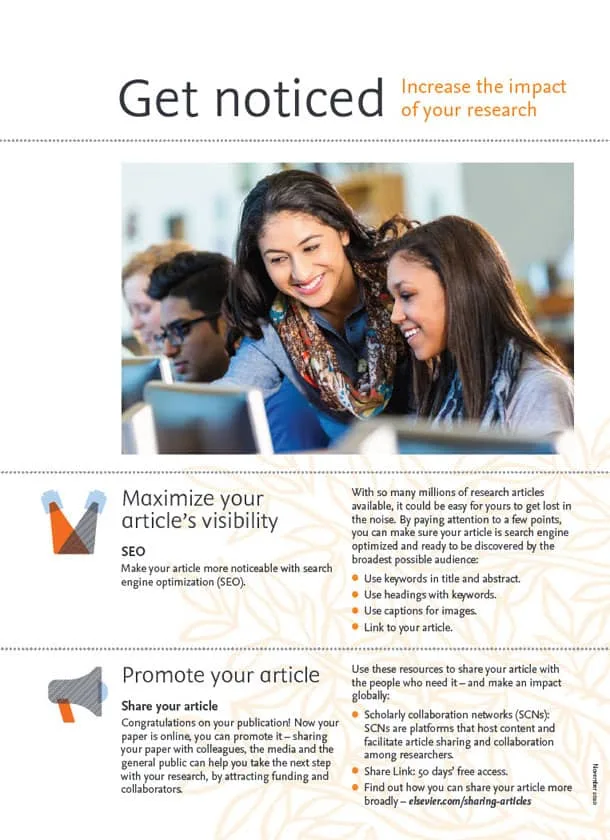Sharing and promoting your article
Sharing and promoting your article form an important part of research, in terms of fostering the exchange of scientific information in your field and allowing your paper to contribute to wider scientific progress.
In addition, bringing your research and accomplishments to the attention of a broader audience also makes you more visible in your field. This helps you and your work to achieve greater impact (including citations), enables you to promote your research, cultivates a stronger reputation, and brings opportunities to collaborate and move forward in your career. This page describes how you can share your article responsibly and offers advice to help you promote it widely.
Sharing your article
Our sharing policy outlines how you can share each version of the article: preprints, accepted manuscripts and the published journal article, depending on the publishing model you have chosen.
As an author, you benefit from sharing the appropriate version of your article which ensures that:
You always receive credit and are cited accurately
The integrity of the scientific record is upheld – you should always direct readers to the most up-to-date version of your article – a link to the published journal article.
By publishing open access, you pay an article publishing charge (APC), making your article immediately, permanently, and freely available for anyone to access, read and build on. In many cases, your institution or research funder will pay the APC on your behalf.
Additionally, almost all our journals allow you to self-archive a version of your subscription article in a repository after the journal-specific embargo period. See our sharing policy for more information.
Our copyright policy outlines the rights you as the author, as well as others, have to share and reuse your article depending on the publishing model and end user license chosen.
Do you want to make your published paper OA?
If your article has already been published as a subscription article, it may still be possible to make it open access up until 31st January of the following year. This cutoff date is necessary to uphold our no double dipping policy. More information is available as part of our journal pricing policy.
Promoting your article
Now that your article is published, you can promote it to enhance the impact of your research. Here's how you can make use of the services we offer.
Share Link
To help you reach more readers, Elsevier will send you and any co-authors a Share Link when your article is published: A personal, customized short link that can be shared by email or on social media, and provides free access to your article on ScienceDirect for 50 days. Colleagues or peers who click on the Share Link will be taken directly to your article, with no sign up or registration required.
50 days’ free access to the HTML and PDF versions of your article
Sharing the link via social media accounts and email helps you generate interest in your article
Sharing your article makes it more visible, potentially increasing downloads and citations
The process is simple: just click on the link during the 50-day free access period
You will automatically receive the Share Link at the final citable publication stage of your article. If co-author information is provided at the time of submission, co-authors will also automatically receive a notification with the article's Share Link.
Showcasing yourself and your research
As published author, it's important that your work stands out and can be easily found by others.
For tips & tricks on how to increase the visibility of your work, including on social media, visit our free quick guide and the"Ensuring Visibility" page on Researcher Academy.
Last but not least, don’t forget to monitor your article's impact with article level metrics.

Get noticed – Increase the impact of your research
Download the flyer